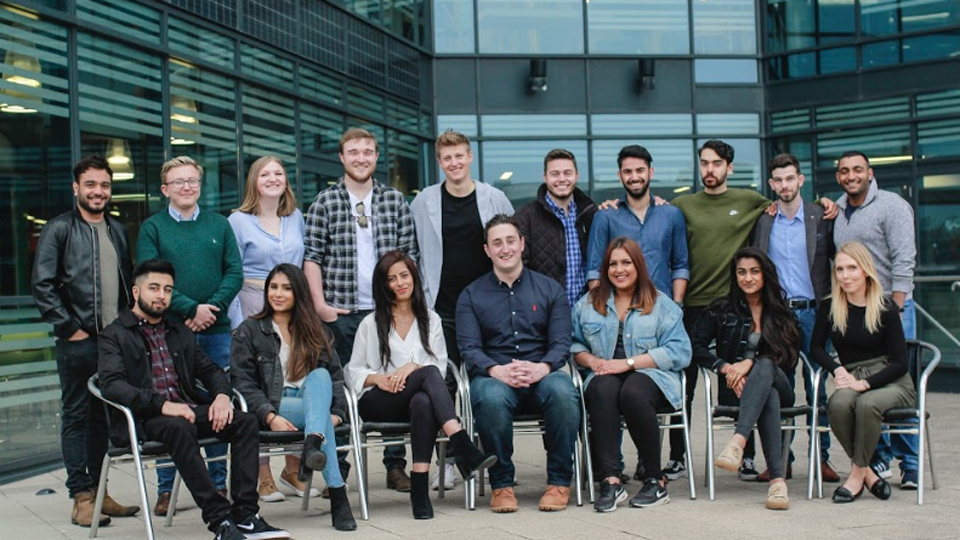- OT
- Life in practice
- Career development
- “First year students will have overcome challenges that we haven’t faced for generations”
A letter to first-year students
“First year students will have overcome challenges that we haven’t faced for generations”
Luke McRoy-Jones, pre-reg optometrist and recent graduate from the University of Plymouth, on making the most of the university experience

26 October 2020
After years of studying for my GCSEs and A-levels, my fate now rested on one morning in August 2017. I remember getting very little sleep that night, possibly due to nerves, or potentially because I had been doing some bar work in a local pub and my sleeping pattern was a little messed up. Nevertheless, I arrived at my school (after a lot of coffee) to open the much-awaited envelope and then checked my UCAS Track. Luckily, a place was confirmed at the University of Plymouth soon after. This was a real relief and I was elated to be able to tell family and friends that I would be heading off to university.
Meet the student
Year group: 2020 graduate and pre-reg optometrist
University: University of Plymouth
I can’t imagine how the lead up to results day would have been this year, with applicants eagerly awaiting teacher assessed grades for exams that had been cancelled. Adding in the Government’s U-turn on how grades were awarded, I envisage that many applicants had an anxious few days eagerly awaiting news from universities.
In first year, freshers was a particular highlight for me. The nerves of being in a new city and environment passed with the myriad of events and the large number of likeminded students who I made friends with. Many of them I remain friends with today.
This year will have been rather different, with COVID-19 compliant rules and regulations, and less time on campus. Having said this, there will still be many opportunities to start networking and make friends.
What would you tell your first-year self?
Once the excitement of the first week had passed, it was time for me to knuckle down and get on with first year. Personally, I found the first year very similar to my A-levels, as the year was all about getting the theoretical grounding, with some core clinical skills sessions mixed in.
However, your personal take on this may well depend on which route you took into university, as many applicants don’t take A-levels or may already have extensive experience in optics, either as an optical assistant or a dispensing optician.
Another highlight of first-year for me was being elected president of Plymouth Optometry Society, the society for optometry students at the university, representing around 200 students.

I think the biggest challenge of first year was getting used to the learning style, as well as balancing social life with university. University learning is very different from that of GCSEs and A-levels, as there is an expectation for self-directed study, in addition to the lectures, seminars and clinical skills sessions. Add in the fact that, when you first start, you want to be going to events to make friends and exploring the city. This can make the balance quite tricky.
My advice would be to try and stay on top of everything as much as you can and do a little, often. Otherwise, work can mount up very quickly and can feel overwhelming.
When we moved to remote lectures due to COVID-19, I found the virtual learning and assessments tricky at first. This was mainly because it was so different to what I was used to, but myself and my colleagues were very grateful for the support we received from the academic team at Plymouth. Any changes were communicated to us swiftly and in detail and this helped make the process more straightforward. Despite being off-campus, our lecturers were all still contactable and made every effort to allow us to access resources and achieve our potential.
For the academic year ahead, I think students can still expect to receive a high level of support and excellent learning sessions, despite not being on campus full-time. Where students are on campus, such as for clinical skills sessions and small group teaching, I think they can be assured that universities will have taken all necessary steps to ensure the safety and wellbeing of students and staff.
To the first-year students I would say well done for getting into university - you should be really proud. This group of first-year students will have overcome challenges, both in education and personally, that we haven’t faced for generations. Over the next few years, you’ll develop and learn a lot, make new friends and make new memories. Enjoy the next chapter (though in a COVID-compliant way, of course).
Luke’s three top tips for first-year:
- Make the most of your university experience; it goes by very quickly. Even though studying is very important, it is also essential to enjoy your time at university and broaden your horizons. Meet new people, try new things and explore the local area
- Be passionate about what you do. Read around your subject and take an interest. You chose to do optometry for a reason and the more passionate you are about the techniques which you are learning, the easier the lab sessions and long days become
- Get involved with the Optometry Society (OpSoc) as much as possible. It is a great opportunity to meet your colleagues at social events and have a professional support network to help you with things like pre-registration applications.
To find out more about the student-focused activities and resources available through AOP membership, click here.
Advertisement


Comments (0)
You must be logged in to join the discussion. Log in